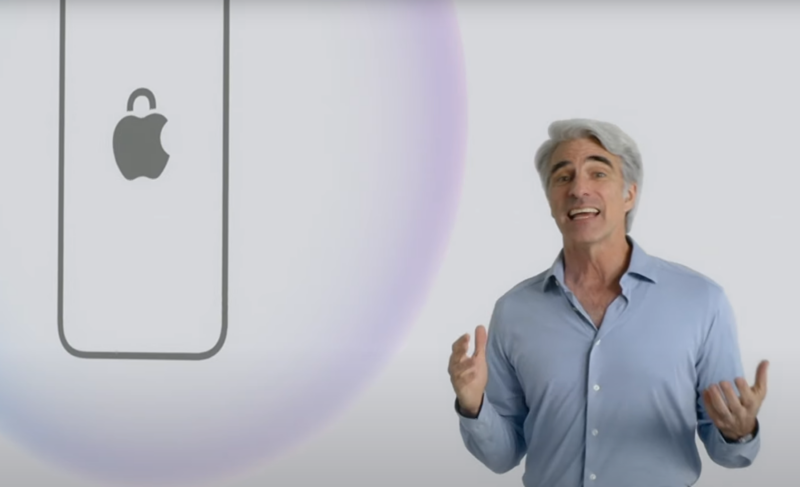
Apple
With most large language models being run on remote, cloud-based server farms, some users have been reluctant to share personally identifiable and/or private data with AI companies. In its WWDC keynote today, Apple stressed that the new “Apple Intelligence” system it’s integrating into its products will use a new “Private Cloud Compute” to ensure any data processed on its cloud servers is protected in a transparent and verifiable way.
“You should not have to hand over all the details of your life to be warehoused and analyzed in someone’s AI cloud,” Apple Senior VP of Software Engineering Craig Federighi said.
Trust, but verify
Part of what Apple calls “a brand new standard for privacy and AI” is achieved through on-device processing. Federighi said “many” of Apple’s generative AI models can run entirely on a device powered by an A17+ or M-series chips, eliminating the risk of sending your personal data to a remote server.
When a bigger, cloud-based model is needed to fulfill a generative AI request, though, Federighi stressed that it will “run on servers we’ve created especially using Apple silicon,” which allows for the use of security tools built into the Swift programming language. The Apple Intelligence system “sends only the data that’s relevant to completing your task” to those servers, Federighi said, rather than giving blanket access to the entirety of the contextual information the device has access to.
And Apple says that minimized data is not going to be saved for future server access or used to further train Apple’s server-based models, either. “Your data is never stored or made accessible to Apple,” Federighi said. “It’s used exclusively to fill your request.”
But you don’t just have to trust Apple on this score, Federighi claimed. That’s because the server code used by Private Cloud Compute will be publicly accessible, meaning that “independent experts can inspect the code that runs on these servers to verify this privacy promise.” The entire system has been set up cryptographically so that Apple devices “will refuse to talk to a server unless its software has been publicly logged for inspection.”
While the keynote speech was light on details for the moment, the focus on privacy during the presentation shows that Apple is at least prioritizing security concerns in its messaging as it wades into the generative AI space for the first time. We’ll see what security experts have to say when these servers and their code are made publicly available in the near future.



